Table of Contents
Happy birthday, Bono (U2, Paul David Hewson), born on this day in 1960!
Come join us now, and enjoy playing your beloved music and browse through great scores of every level and styles!
Can’t find the songbook you’re looking for? Please, email us at: sheetmusiclibrarypdf@gmail.com We’d like to help you!
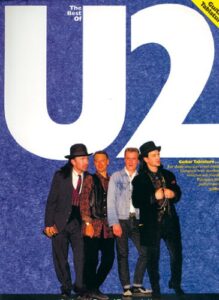
Best Sheet Music download from our Library.




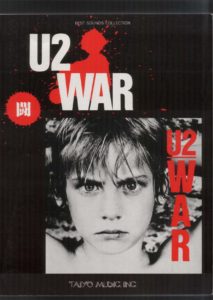
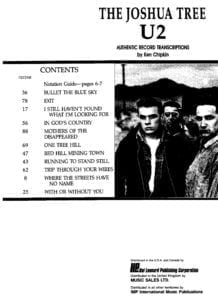
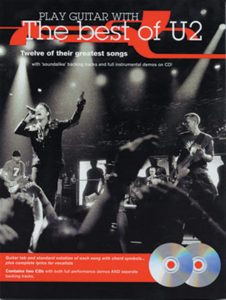
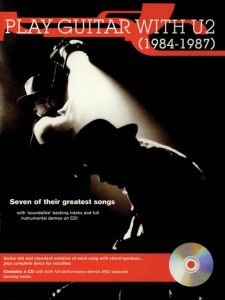



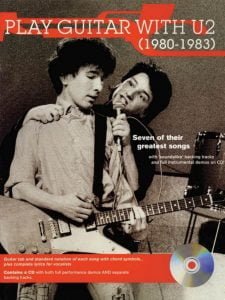
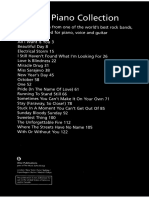
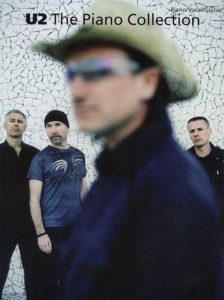
Please, subscribe to our Library.
If you are already a subscriber, please, check our NEW SCORES’ page every month for new sheet music. THANK YOU!
Browse in the Library:
Or browse in the categories menus & download the Library Catalog PDF:
Bono (Paul David Hewson): A Biography of U2’s Iconic Frontman
“The best music is essentially there to provide you something to face the world with.” — Bono
Early Life and Background
Paul David Hewson, known worldwide as Bono, was born on May 10, 1960, in Dublin, Ireland. He was raised in a working-class, mixed-religion household—his mother, Iris Rankin Hewson, was Protestant, and his father, Brendan Robert “Bob” Hewson, was Catholic. This dual heritage would later influence his views on unity and reconciliation.
Bono’s childhood was marked by tragedy when his mother died suddenly of a brain aneurysm when he was just 14 years old. This loss deeply affected him and would later surface in his songwriting (“I Will Follow” from U2’s debut album is a tribute to her).
As a teenager, Bono attended Mount Temple Comprehensive School, where he met his future wife, Ali Hewson (née Alison Stewart), and his U2 bandmates.

The Birth of U2 and Early Career
In 1976, drummer Larry Mullen Jr. posted a notice at school seeking musicians for a band. Bono (then still Paul Hewson), guitarist The Edge (David Evans), bassist Adam Clayton, and Mullen formed a group originally called “Feedback”, later renamed “The Hype”, before settling on U2 in 1978.
Bono earned his nickname from a friend who thought “Bono Vox” (Latin for “good voice”) suited his vocal abilities—though he initially disliked it. His early stage presence was raw and unpolished, but his charisma and passion quickly made him the band’s focal point.
U2 signed with Island Records in 1980 and released their debut album, Boy, that same year. Songs like “I Will Follow” showcased Bono’s emotive voice and poetic lyrics, setting the stage for their rise.
Rise to Global Stardom
The 1980s saw U2 evolve from post-punk newcomers to one of the biggest bands in the world. Albums like:
- War (1983) – Featuring “Sunday Bloody Sunday” and “New Year’s Day”, reflecting political turmoil.
- The Unforgettable Fire (1984) – Introducing atmospheric sounds with “Pride (In the Name of Love)”, a tribute to Martin Luther King Jr.
- The Joshua Tree (1987) – A masterpiece blending American roots music with anthemic rock, including “With or Without You” and “Where the Streets Have No Name.”
Bono’s lyrics often explored faith, love, and social justice, making U2’s music both personal and universal. His dynamic stage presence—running into crowds, climbing scaffolding—made their concerts legendary.
The 1990s: Reinvention and Experimentation
In the 1990s, U2 radically shifted their sound with Achtung Baby (1991), embracing electronic and industrial influences. Bono adopted alter egos like “The Fly” (a leather-clad, sunglasses-wearing rock star parody) during the Zoo TV Tour, satirizing fame and media obsession.
Despite the irony, Bono remained deeply engaged in activism, particularly in human rights and debt relief for developing nations.
Bono the Activist: Beyond Music
Bono’s humanitarian work is as defining as his music. Key efforts include:
- ONE Campaign (2004) – Fighting extreme poverty and preventable disease.
- (RED) (2006) – Raising funds for HIV/AIDS programs.
- Debt relief advocacy – Successfully lobbying world leaders to cancel billions in African debt.
His activism earned him Nobel Peace Prize nominations, a knighthood (2007, honorary British knighthood), and meetings with global leaders like Nelson Mandela, Pope John Paul II, and Barack Obama.
Personal Life and Legacy
Bono married Ali Hewson in 1982, and they have four children (Jordan, Elijah, John, and Eve). Despite fame, they’ve maintained a relatively private family life in Ireland.
Though sometimes criticized for tax arrangements (U2 moved part of their business to the Netherlands) and perceived self-righteousness, Bono remains one of music’s most respected figures.
Later Career and U2’s Continued Success
In the 2000s–2020s, U2 released:
- All That You Can’t Leave Behind (2000) – A return to rock anthems (“Beautiful Day”).
- How to Dismantle an Atomic Bomb (2004) – Featuring “Vertigo” and “Sometimes You Can’t Make It On Your Own” (a tribute to his late father).
- Songs of Innocence (2014) – A free iTunes release that sparked debate.
- Songs of Experience (2017) – Reflecting on mortality and legacy.
Bono also ventured into film scoring (“Mandela: Long Walk to Freedom”) and broadway (“Spider-Man: Turn Off the Dark”).
Bono and U2: The Voice of a Generation
Bono’s journey—from a Dublin teenager grieving his mother to a global rock star and activist—is unparalleled. His voice, lyrics, and relentless idealism have made him one of music’s most enduring figures. Whether through anthems of love, protest, or faith, Bono remains a defining artist of his era.
Key Quotes from Bono:
- “Music can change the world because it can change people.”
- “As a rock star, I have two instincts: I want to have fun, and I want to change the world. I have a chance to do both.”
Further Reading/Watching:
- Documentary: “Bono & The Edge: A Sort of Homecoming” (Disney+)
- Autobiography: “Surrender: 40 Songs, One Story” (2022)
Bono’s legacy is not just in U2’s music but in his unwavering belief that art and activism can make a difference.
Bono and U2: A Comprehensive Exploration of Their Biography, Music, and Legacy
U2 is one of the most influential rock bands in history, known for their anthemic sound, socially conscious lyrics, and electrifying live performances. At the heart of the band is Bono (Paul David Hewson), the charismatic frontman whose powerful voice and passionate activism have made him a global icon. Since their formation in Dublin in 1976, U2 has sold over 170 million records worldwide, won 22 Grammy Awards, and been inducted into the Rock & Roll Hall of Fame.
This article delves into the band’s biography, musical style, signature licks and harmonies, influences, legacy, filmography, and discography, along with links to essential documentaries and performances.
Biography: The Formation and Rise of U2
Early Years (1976–1980)
U2 was formed in 1976 when four Dublin teenagers—Bono (vocals), The Edge (guitar, keyboards, vocals), Adam Clayton (bass), and Larry Mullen Jr. (drums)—responded to a school notice posted by Mullen seeking musicians. Originally called “Feedback” and later “The Hype,” they settled on the name U2, inspired by the American U-2 spy plane and its connotations of ambiguity and intrigue.
Their early sound was rooted in post-punk, influenced by bands like The Clash, Joy Division, and Patti Smith. After winning a talent contest in 1978, they signed with CBS Ireland and later with Island Records, releasing their debut album, Boy (1980), produced by Steve Lillywhite. Songs like “I Will Follow” showcased their raw energy and emotional depth.
Breakthrough and Global Stardom (1981–1990)
The 1980s solidified U2’s place in rock history. Their second album, October (1981), explored spiritual themes, while War (1983) delivered politically charged anthems like “Sunday Bloody Sunday” and “New Year’s Day.”
The live album Under a Blood Red Sky (1983) and the documentary “U2 Live at Red Rocks” captured their electrifying stage presence. Their fourth album, The Unforgettable Fire (1984), marked a shift toward atmospheric production with Brian Eno and Daniel Lanois, yielding classics like “Pride (In the Name of Love).”
The monumental The Joshua Tree (1987) propelled them to superstardom, blending American roots music with expansive rock. Hits like “With or Without You,” “Where the Streets Have No Name,” and “I Still Haven’t Found What I’m Looking For” became timeless anthems. The subsequent Rattle and Hum (1988) film and album documented their exploration of blues and gospel.
Experimentation and Reinvention (1991–2000)
In the 1990s, U2 reinvented themselves with Achtung Baby (1991), embracing electronic and industrial influences. Produced by Eno and Lanois, the album featured “One,” “Mysterious Ways,” and “The Fly.” The Zoo TV Tour (1992–1993) was a multimedia spectacle, satirizing celebrity culture.
They continued experimenting with Zooropa (1993) and Pop (1997), incorporating techno and dance elements. Though Pop was initially divisive, its accompanying PopMart Tour was a visual extravaganza.
Return to Rock and Activism (2000–Present)
The 2000s saw U2 return to a more straightforward rock sound with All That You Can’t Leave Behind (2000), featuring “Beautiful Day” and “Walk On.” How to Dismantle an Atomic Bomb (2004) included “Vertigo” and “Sometimes You Can’t Make It on Your Own.”
Their later albums—No Line on the Horizon (2009), Songs of Innocence (2014), and Songs of Experience (2017)—explored personal and political themes. Despite controversies (like the automatic iTunes release of Songs of Innocence), U2 remained a dominant live act, with groundbreaking tours like 360° (2009–2011), the highest-grossing tour ever at the time.
Musical Style: Licks, Harmonies, and Innovations
Signature Guitar Licks and The Edge’s Technique
The Edge is renowned for his minimalist, delay-heavy guitar style. Instead of fast solos, he uses:
- Echo and Delay Effects (e.g., “Where the Streets Have No Name,” “Bad”)
- Arpeggiated Chords (e.g., “With or Without You”)
- Driving Riffs (e.g., “Vertigo,” “Desire”)
His use of the Infinite Guitar (a sustain-enhancing technique) on “With or Without You” is iconic.
Harmonic and Lyrical Themes
U2’s music often features:
- Open, Delayed Harmonies (e.g., “The Unforgettable Fire”)
- Gospel and Blues Influences (e.g., “I Still Haven’t Found What I’m Looking For”)
- Political and Spiritual Lyrics (e.g., “Sunday Bloody Sunday,” “One”)
Bono’s voice ranges from intimate whispers (“All I Want Is You”) to soaring cries (“Pride”).
Influences and Legacy
Musical Influences
U2’s sound draws from:
- Post-Punk (Joy Division, The Clash)
- Classic Rock (The Beatles, Led Zeppelin)
- Gospel and Soul (Bob Dylan, Marvin Gaye)
- Electronic (Kraftwerk, David Bowie)
Impact on Music and Culture
U2 influenced bands like Coldplay, Radiohead, and The Killers. Their activism—addressing AIDS, poverty (via ONE Campaign), and human rights—has made them more than a band, but a cultural force.
Filmography and Documentaries
U2’s visual works include:
- Rattle and Hum (1988) – A mix of live performances and studio recordings.
- U2 3D (2008) – A groundbreaking 3D concert film.
- From the Sky Down (2011) – A documentary on Achtung Baby.
- Invisible (2014) – A short film for their Songs of Innocence single.
Recommended Documentaries:
- “U2: A Year in Pop” (1997) – Covers the Pop era.
- “U2: The Joshua Tree – Classic Albums” (1999) – Behind-the-scenes of their masterpiece.
Discography: Essential Albums
- Boy (1980) – Raw post-punk energy.
- War (1983) – Political anthems.
- The Unforgettable Fire (1984) – Atmospheric rock.
- The Joshua Tree (1987) – Their magnum opus.
- Achtung Baby (1991) – Dark, electronic reinvention.
- All That You Can’t Leave Behind (2000) – Return to form.
- How to Dismantle an Atomic Bomb (2004) – Rock-driven anthems.
Must-Watch Performances and Videos
- Where the Streets Have No Name (Live at Slane Castle)
- One (Official Video)
- With or Without You (Live)
- Sunday Bloody Sunday (Live at Red Rocks)
U2’s journey from Dublin schoolboys to global rock legends is a testament to their innovation, resilience, and emotional resonance. Bono’s impassioned vocals, The Edge’s shimmering guitar, Clayton’s steady bass, and Mullen’s powerhouse drums create a sound that is both intimate and universal. Their music continues to inspire, proving that rock ‘n’ roll can be both art and activism.
Whether through anthems of love, protest, or spiritual yearning, U2 remains one of the greatest bands of all time.
